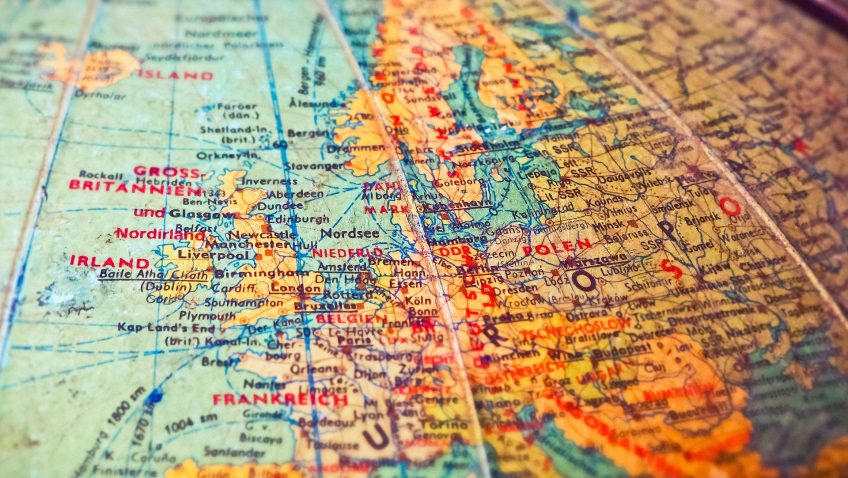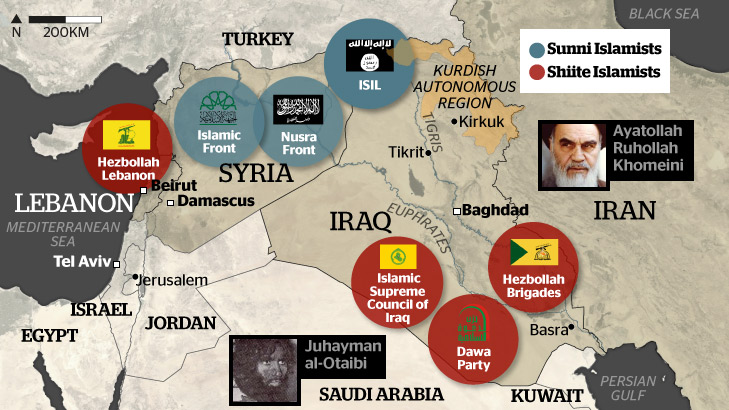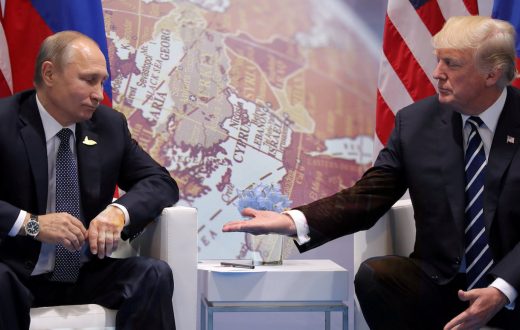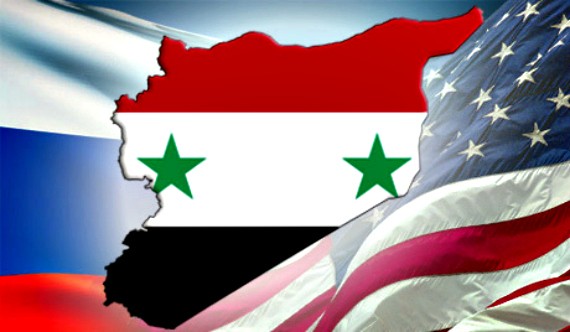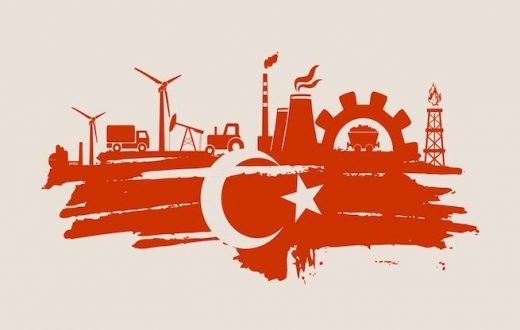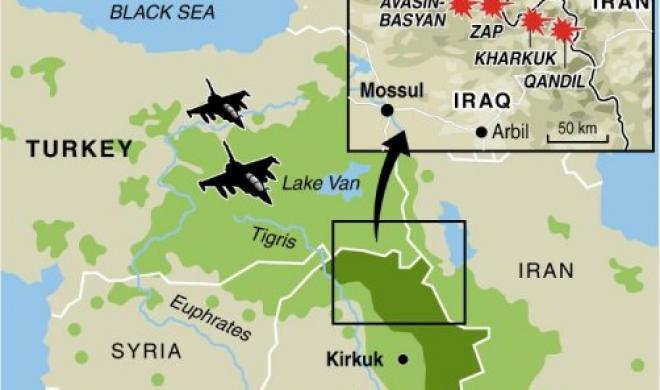With increased violence and instability in the Middle East in the aftermath of the Arab Spring, Turkish foreign policy has been a hot topic in international media and forums. Over the last two years, Turkey’s role in regional politics has come under increased scrutiny, especially in association with the activity of another resurgent power, Russia. Both Russia and Turkey, whose elites share so many similarities in perspective and their approach to the outside world, act united in their resolution to put their bilateral relations on a firm and strategically coherent foundation.
Conditions for deeper cooperation are ripe as never before. Both powers enjoy ambivalent relations with Western partners. Moreover, both Turkey and Russia have attempted to diversify their foreign relations since the end of the Cold War and move away from what they see to be a cumbersome dependence on Europe. Against this background, the concept of ‘Eurasianism’ has long been viewed as an ideational platform that can further cement Russian-Turkish ties and can create an effective drive for a civilizational alliance capable of resisting Western pressure.
After the end of bipolar global confrontation in the early 1990s, Turkey and Russia discovered in each other prospective partners in many areas, especially trade, tourism, construction and energy projects. However, it was only with the establishment of the High-Level Cooperation Council in May 2010 that Ankara and Moscow could finally overcome their residual mutual mistrust and could approach each other regarding more strategic issues expanding upon their experience within the Eurasian political space.
Statements made by Turkish and Russian officials may serve as proof that both sides are considering expanding bilateral ties into multilateral cooperation focused on Eurasian integration projects. In November 2013, during the bilateral High-Level Cooperation Council meeting, Turkish Prime-Minister Recep Tayyip Erdogan proposed the idea of Turkey entering the Shanghai Cooperation Organization and free trade agreements with Eurasian countries as a way to rebalance its’ unsuccessful accession talks with the European Union. Signals to this effect were later repeatedly sent even after the 2015 downing of a Russian Su-24 jet by Turkish forces. In August 2017, after having gained no progress over renewals of terms with the European Union Customs Union (EUCU), Turkish officials once again pointed at the possibility of Turkey seeking alternatives in Eurasian integration projects, such as the Eurasian Customs Union that unites the markets of Russia, Kazakhstan, Belarus, Armenia and Kyrgyzstan.
Even though, one may speculate that many statements made by Turkish officials in their essence remain mere rhetoric, there are instances where the Turkish government has undertaken practical steps to boost closer economic ties with Eurasian countries. Since 2008, Turkey began implementing a number of projects, mainly infrastructural, such as the Baku-Tbilisi-Kars railway. Such projects aim to lay the groundwork for the wider integration of the Turkish economy in trade projects with China and Central Asian republics, within the framework of the One Belt One Road Initiative. Meanwhile, Moscow tends to make statements that both criticize Western political dominance while singling out Turkey as a non-Western power that would be suitable for cooperation and participation in ostensibly Russian-led initiatives.
Historic perspective
The trend to push bilateral relations into a more ideologically refined, Eurasianist framework may have a historical rationale. Both Turkey and Russia share the experience of an imperial history and the related nostalgia for past glories. After the collapse of their perspective imperial polities, the political process of Russia and Turkey has been defined by efforts of their national elites to modernize and carry out reforms that would enable them to compete with European, and later Western powers, on equal terms. While each country followed a different trajectory, such remedial modernization projects carried out in both Russia and Turkey may have contributed to convergence between Moscow and Ankara during the 20th century, despite the fierce ideological confrontation between them.
In the 1920s, Turkey and the Soviet Union considered each other perfect partners to overcome dangerous isolation of their newly established political regimes by European powers and the United States. The psychological burden of the Treaty of Rapallo and the Treaty of Sevres later played a decisive role in Ankara’s attempts to seek the cooperation and solidarity of Moscow when its own ties with America soured. In 1984, with Cold War hostility waning, Turkey and the Soviet Union managed to forge a very sophisticated goods-for-gas agreement. This marked a firm beginning for deeper economic cooperation.
But it is not only a common historical legacy and a similar path of modernization, but also common contemporary challenges that today push Turkey and Russia closer. The geopolitical shifts of the post-Cold War order put tremendous pressure on the security and foreign policy of both powers. With the stabilization of national economies in Russia and Turkey in the latter part of the 1990s, both endeavored to expand their footprint in their close geographical neighborhood, in regions where a historical and cultural legacy would facilitate their penetration. The 21st century activism of these new rising powers has caused some political circles to believe that the old world is waning under the rising influence of new Eurasian powers like Russia, Turkey, China and others.
A further force that brought Turkey and Russia together was the expansion of democratic freedoms in both countries during the 1990s, and then a decline of democratization efforts and an eventual drift toward authoritarianism in the 2010s. Today, political regimes in Turkey and Russia can best be described as hybrid regimes. They have competitive authoritarian features with ostensibly functioning democratic institutions. While the ruling party or leader exerts pressure and control on the opposition via informal channels, there has not been a slide into outright authoritarianism which would be neither internationally acceptable nor productive under conditions where national economies depend on the outside world.
Problems with democratic process, the rule of law, human rights and freedom has long been drawing criticism from Europe and the United States. The underlying logic behind Western attempts to anchor democratic rule in Turkey and Russia may be expressed by a desire to see more predictable, cooperative and ideologically friendly regimes that would further contribute to promotion of these norms and values in their adjacent regions: the Middle East, Central Asia, the Caucasus, and Eastern Europe. On the other hand, Western attempts to secure democratic achievements of the previous years and to support civil society are regarded by ruling political elites today as a direct intrusion in domestic affairs, which represents yet another foreign policy challenge uniting Turkey and Russia.
Under these conditions, circles led in Russia by Alexander Dugin and by Doğu Perinçek in Turkey are being bestowed by the benevolence of their rulers, who are eager to talk about a common idea that would unite Russian and Turkish activism for the sake of their better and firmer resistance to the Western attempts to ostensibly subdue these nations. Roots of the Eurasian ideology go back to the early 20th century, when Russian intellectuals tried to redefine the roots of state crisis within the Russian Empire and to assess the results of the Bolshevik revolution that gave rise to the new geopolitical colossus, the Soviet Union. Eurasianists came to the conclusion that Russia represents not a nation, but a civilization that unites all local nations in the vast territories of Eurasia. In its essence this ideology was a reformulated tradition of Russian Slavic nationalism.
Today’s Eurasianism
Today (neo)-Eurasianism tends to describe the efforts of states to develop an indigenous framework of cooperation, usually as an alternative to the dominance of Western capitalism. Russian and Turkish official circles tend to credit Eurasianism as a practical ideological framework for mutual cooperation for several crucial reasons. First of all, by saying that all versions of national democracies have the right to existence, Eurasianists in essence emphasize the idea of sovereignty and vehemently reject interference into domestic affairs. Besides, Eurasianists’ focus on existing alternatives to the Western values and norms of international conduct add legitimacy to Russian and Turkish criticism of Western partners and, on a rhetorical level, improve their negotiating positions in talks over terms of future dialogue with the West.
But looking into the real world manifestation of the Eurasianist narrative reveals serious gaps. The tendency to ascribe Eurasianism as a driving force behind rapprochement seems to be a myth. Alternatively, it doesn’t seem to be a reliable driving force of bilateral ties that are loaded with hidden competition in the Central Asia, Black Sea, Caucasus and Syria. Moreover, advocates of Eurasianism in Turkey and Russia understand the term to mean different things. For Russian Eurasianists, Eurasianism entails an ideology that today is called upon to legitimize the Russian presence in its neighbourhood. Meanwhile, for Turkish Eurasianists the term tends to mean a foreign policy strategy that is focused on developing effective tools against Western pressure. Finally, Eurasian rhetoric serves the purpose of masking the transactional and situational character of bilateral relations, evidenced by the S-400 deal and cooperation in Syria.
While Russian and Turkish officials show a desire to talk about the underlying ideological foundation of the rapprochement, it is nevertheless evident that both countries are more inclined to advance ties with the Western world. The volume of trade between Turkey and the European Union in 2016 was at the level of US $145 billion, while Russian-Turkish trade hit a mark of US $21.6 billion in 2017. An unbalanced trade structure (with Russian energy exports enjoying better positions) and economic relations force Turkey and Russia talk about bilateral ties in more abstract terms by describing their relations as part of a bigger Eurasian project. Moreover, in cultural terms the population of both states feels more affiliated with Europe than with each other. Both Russia and Turkey each have a large expatriate community in European countries.
Attempts being made by Russia and Turkey to dress bilateral relations in a more rigid ideational framework are understandable. Still, Turkey and Russia can’t build the future of their relations on an anti-Western narrative. Paradoxically, it is their common movement towards the European community that may advance cooperation: historical process of entering the European civilization established better rules of diplomatic conduct while providing guarantees from breaking the law by the other side. Within this movement, each of the two powers feels more secure knowing that they share common ideas and values like the rule of law, democracy and human rights. These commonalities may further increase tolerance to inter-dependence and compromise in critical areas and help Turkey and Russia to overcome, rather than ignore their historical legacy of mistrust.
David İmoisi, originally from Nigeria, is currently studying international relations at Yakin Dogu Universitesi in Cyprus. His interests revolve around international politics and diplomacy.

